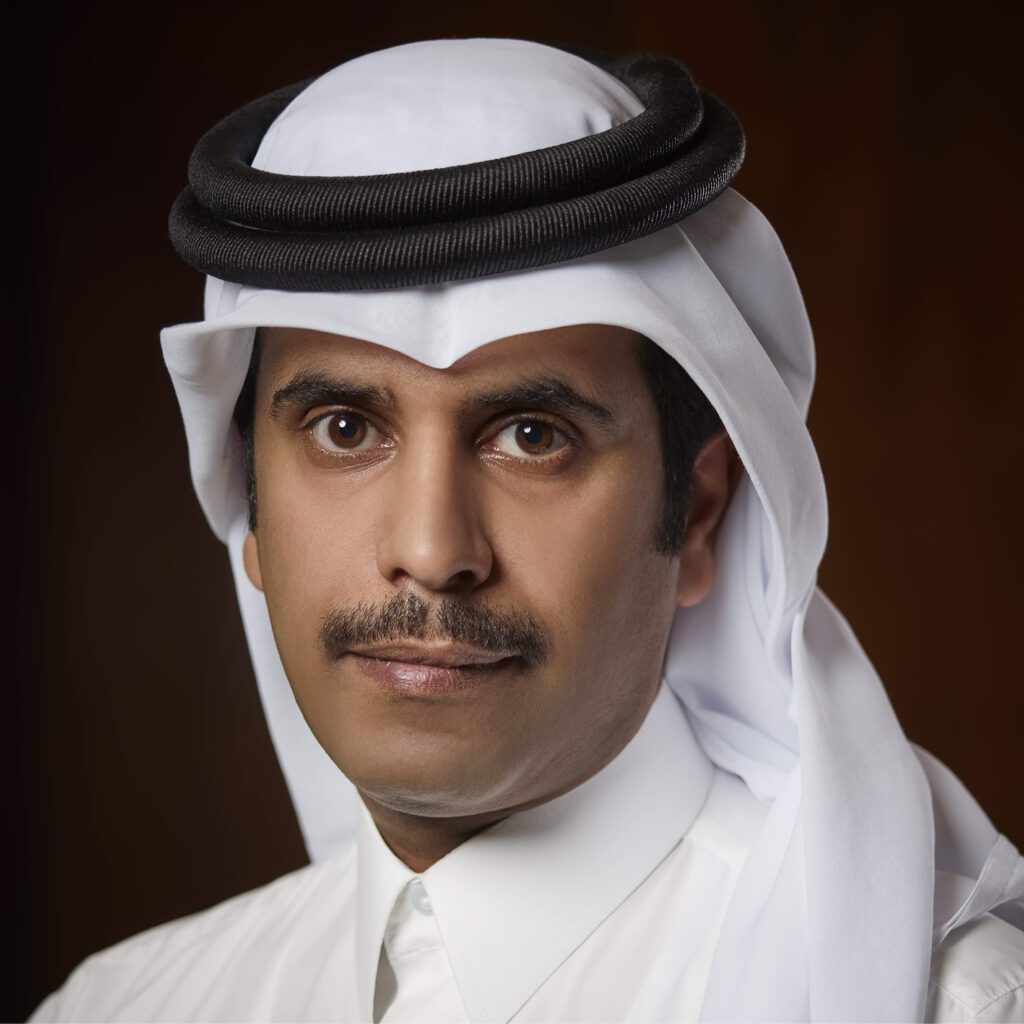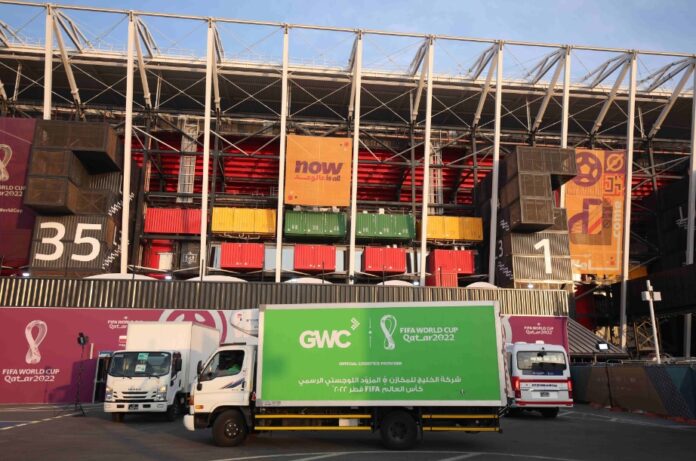GWC outline extensive logistics mandate during Qatar 2022TM as the country looks forward to hosting more major international mega-events in the future.
The resounding success of the FIFA World Cup Qatar 2022™ lays a platform for the country to host major international events long into the future. The tournament will also significantly boost the development of business sectors across the country – including logistics.

Sheikh Abdulla Bin Fahad Bin Jassem Bin Jabor Al Thani, Chairman, GWC, said: “we have spent years preparing for this mega-event and stood ready to support Qatar, the local organizing committee and FIFA to deliver a memorable edition of international football’s showpiece event. We are also determined to leverage this tournament to deliver a robust economic legacy that benefits businesses large and small for generations to come – in line with the goals of Qatar National Vision 2030.”

A colossal undertaking
Delivering the first FIFA World Cup in the Middle East and Arab world involved a gigantic logistical mandate, which was handled in Qatar by GWC; the Official Logistics Provider for the tournament.
The numbers involved are staggering: GWC handled more than 15 million cans of beverage, 1.8 million pieces of equipment, 117,900 pieces of furniture, 20,400 traffic and safety assets, 34,700 office supplies and 20,000 spectator and traffic barriers. This was in addition to all the tournament equipment, including kits, uniforms and footballs. Transporting fresh food and beverages to a host of tournament sites was another key deliverable. For the media, GWC handled more than 30,000 pieces of equipment, including cameras, tripods and lighting, with everything delivered to and from eight stadiums, 36 team base camp hotels, two airports, two seaports, media hubs, fan zones and other sites.
Serving the logistics requirements of an event as large as the FIFA World CupTM needs a forward-thinking strategy in order to deliver a seamless operation. GWC implemented a control tower approach for Qatar 2022TM which delivered according to a master delivery schedule (MDS). This acted as the central point for all logistical activities; from the time an order needs to be picked up, where it has to be delivered, the time it is due and its current status.
Vision coming to fruition
From a logistics standpoint; people, processes and technology are the key ingredients, according to GWC’s Group CEO, Ranjeev Menon. “When you are delivering the logistics mandate of the FIFA World CupTM, detailed planning is imperative,” said Menon. “What we saw during Qatar 2022TM was the result of years of preparation. It was our plans – and those of our stakeholders in Qatar and globally – coming to fruition.”
“In order to optimise the value chain and unlock maximum potential, it is essential for companies to get the right balance between people, processes and technology. At GWC, we believe the success of Qatar 2022TM was people-driven, technology-fuelled and goal-orientated,” Menon added.
Qatar’s growing MSMEs sector
Hosting the FIFA World CupTM has cemented Qatar’s status as a global hub for major international events – laying a platform for significant economic development, in particular helping micro, small and medium enterprises (MSMEs) flourish in the country and across the region.
In early 2022, GWC opened Al Wukair Logistics Park, its largest logistics park to date. Covering an area of 1,500,000m² that caters specifically for MSMEs. The site provides all their commercial needs, as well as affording an opportunity to network with like-minded businesses. GWC is an enabler and catalyst for MSMEs – helping them to establish and grow their businesses and leverage Qatar’s hosting of the FIFA World Cup.
Menon said: “MSMEs have benefitted massively from the World Cup in a vast range of sectors, including logistics. The challenge now is for MSMEs to leverage the tournament’s legacy and grow their businesses, supported by the platform which Qatar built.”
Menon praised Qatar’s leadership for fostering a conducive business environment and helping the logistics industry to flourish – boosted significantly by hosting the biggest sporting event on the planet.
“We have received massive support from all sectors from day one of our journey. We wouldn’t be where we are today without the vision, commitment and passion of Qatar’s wise leadership,” said Menon.
“One area of particular support would be Qatar’s management of the public-private-partnership, something GWC is proud to be taking part in. Through this partnership, we are committed to developing Qatari abilities and reinforcing the logistics sector’s role and contribution to economic development, while offering direction to government projects for new approaches and modern vision in managing national projects efficiently and sustainably.”
Integrated systems and dedicated staff
Delivering Qatar 2022TM involved an extensive range of services, including asset management and tracking, asset recovery and dissolution, pre-receipt processes, warehousing, pick, pack and dispatch, logistics fleet management, materials distribution, vehicle delivery permit distribution, freight forwarding, customs clearance, reverse logistics and last mile delivery.
A prime example of such operation was the distribution of +200,000 match tickets both locally and internationally. The operation included collection of tickets, parking passes and other ticketing accessories, sorting, segregating, inventory creation, all the way to international and local delivery.
The compact nature of the tournament proved a huge advantage. Qatar delivered the most compact edition of the FIFA World CupTM in modern history, with every stadium located within an hour’s journey time from central Doha.
Menon said: “From the very beginning, Qatar highlighted the opportunity to host a compact World Cup for the benefit of fans, players and officials. While it has been amazing for fans to attend more than one match a day, Qatar’s geographical footprint has also proved to be hugely beneficial in terms of logistics, making it simple for people and products to be in the right locations at the right time.”
GWC’s state-of-the-art dedicated logistics network
A dedicated 50,000m² warehouse footprint, plus more than 150 dedicated vehicles – all within 45 minutes of any stadium and more than 400 key sites – were the foundations for success. More than 200 truck drivers covered 1,900,000km of distribution journeys over 288,000 hours, backed by 1,200 venue operations staff and six bespoke logistics systems. All were dedicated to delivering on-time and in-full for a host of stakeholders, including FIFA, participating teams, commercial affiliates, broadcasters, media, fans, staff, suppliers and vendors.
“The key to everything is long-term planning, dedicated training for thousands of staffs and a range of relevant test events. We benefitted significantly from staging tournaments like the FIFA Club World Cup, on two occasions, and the FIFA Arab Cup, along with local events such as the Amir Cup,” said Menon.
“Going forward, we will focus on the further integration of artificial intelligence and automation, to make it simpler and quicker to deliver our objectives. We have also seen a major focus on sustainability and delivering environmentally-friendly solutions during the FIFA World CupTM and we will continue to support these trends to continue in the future,” added Menon.
He continued: “The final lesson learnt is that hosting mega-events in a compact setting is not only preferable for fans and players – it is also hugely beneficial for organisers and the people and businesses involved in logistics planning and delivery.”
The importance of reverse logistics
While the players head back to their clubs and competing week to week in leagues around the world, GWC will focus on reverse logistics, which means returning every item to its next destination.
Menon said: “Just about everything that arrived in Qatar needs to be returned home safely. Reverse logistics is a major part of our operation, and our work will continue long after the trophy has been lifted. We will work closely with our stakeholders to carefully demobilize every item and ship it securely back to its next destination.”
A bright future
Menon is looking forward to a positive future for Qatar, GWC and the logistics sector.
He said: “What has been clear from day one is that hosting the FIFA World CupTM is part of a long-term plan for Qatar. It is accelerating the objectives of Qatar National Vision 2030 and helping a number of industries to grow and develop, including the vital logistics sector.
“Our goals now are to continue supporting the country in its mission to host major international events, building on the incredible legacy of hosting the first FIFA World CupTM in the Middle East and Arab world, and expanding our footprint into countries across the region. We are very confident a bright future lies ahead for both Qatar and GWC.”







